
Albert Camus was a French philosopher, author, dramatist, journalist, world federalist, and political activist. He was the recipient of the 1957 Nobel Prize in Literature at the age of 44, the second-youngest recipient in history. His works include The Stranger, The Plague, The Myth of Sisyphus, The Fall and The Rebel.

Existentialism is a family of views and forms of philosophical inquiry that explores the issue of human existence. Existentialist philosophers explore questions related to the meaning, purpose, and value of human existence. Common concepts in existentialist thought include existential crisis, dread, and anxiety in the face of an absurd world and free will, as well as authenticity, courage, and virtue.
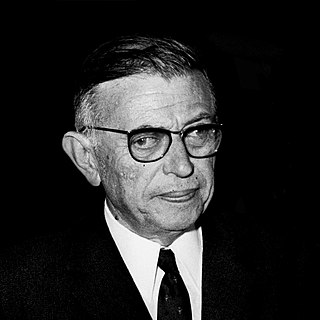
Jean-Paul Charles Aymard Sartre was a French philosopher, playwright, novelist, screenwriter, political activist, biographer, and literary critic, considered a leading figure in 20th-century French philosophy and Marxism. Sartre was one of the key figures in the philosophy of existentialism. His work has influenced sociology, critical theory, post-colonial theory, and literary studies. He was awarded the 1964 Nobel Prize in Literature despite attempting to refuse it, saying that he always declined official honors and that "a writer should not allow himself to be turned into an institution."
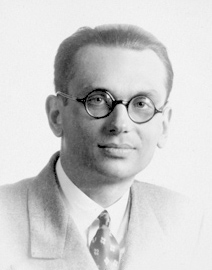
Kurt Friedrich Gödel was a logician, mathematician, and philosopher. Considered along with Aristotle and Gottlob Frege to be one of the most significant logicians in history, Gödel profoundly influenced scientific and philosophical thinking in the 20th century, building on earlier work by Frege, Richard Dedekind, and Georg Cantor.

Plato, born Aristocles, was an ancient Greek philosopher of the Classical period who is considered a foundational thinker in Western philosophy and an innovator of the written dialogue and dialectic forms. He raised problems for what became all the major areas of both theoretical philosophy and practical philosophy, and was the founder of the Platonic Academy, a philosophical school in Athens where Plato taught the doctrines that would later become known as Platonism.
Truth or verity is the property of being in accord with fact or reality. In everyday language, it is typically ascribed to things that aim to represent reality or otherwise correspond to it, such as beliefs, propositions, and declarative sentences.

Max Born was a German-British physicist and mathematician who was instrumental in the development of quantum mechanics. He also made contributions to solid-state physics and optics and supervised the work of a number of notable physicists in the 1920s and 1930s. Born was awarded the 1954 Nobel Prize in Physics for his "fundamental research in quantum mechanics, especially in the statistical interpretation of the wave function".

Simone Lucie Ernestine Marie Bertrand de Beauvoir was a French existentialist philosopher, writer, social theorist, and feminist activist. Though she did not consider herself a philosopher, nor was she considered one at the time of her death, she had a significant influence on both feminist existentialism and feminist theory.
Nothing, no-thing, or no thing, is the complete absence of anything as the opposite of something and an antithesis of everything. The concept of nothing has been a matter of philosophical debate since at least the 5th century BC. Early Greek philosophers argued that it was impossible for nothing to exist. The atomists allowed nothing but only in the spaces between the invisibly small atoms. For them, all space was filled with atoms. Aristotle took the view that there exists matter and there exists space, a receptacle into which matter objects can be placed. This became the paradigm for classical scientists of the modern age like Newton. Nevertheless, some philosophers, like Descartes, continued to argue against the existence of empty space until the scientific discovery of a physical vacuum.

Absurdist fiction is a genre of novels, plays, poems, films, or other media that focuses on the experiences of characters in situations where they cannot find any inherent purpose in life, most often represented by ultimately meaningless actions and events that call into question the certainty of existential concepts such as truth or value.
The Library of Living Philosophers is a series of books conceived of and started by Paul Arthur Schilpp in 1939; Schilpp remained editor until 1981. The series has since been edited by Lewis Edwin Hahn (1981–2001), Randall Auxier (2001–2013), and Douglas R. Anderson (2013–2015). The Library of Living Philosophers is currently edited by Sarah Beardsworth (2015-present). Each volume is devoted to a single living philosopher of note, and contains, alongside an "intellectual autobiography" of its subject and a complete bibliography, a collection of critical and interpretive essays by several dozen contemporary philosophers on aspects of the subject's work, with responses by the subject. The Library was originally conceived as a means by which a philosopher could reply to their interpreters while still alive, hopefully resolving endless philosophical disputes about what someone "really meant." While its success in this line has been questionable—a reply, after all, can stand just as much in need of interpretation as an original essay—the series has become a noted philosophical resource and the site of much significant contemporary argument.

Routledge is a British multinational publisher. It was founded in 1836 by George Routledge, and specialises in providing academic books, journals and online resources in the fields of the humanities, behavioural science, education, law, and social science. The company publishes approximately 1,800 journals and 5,000 new books each year and their backlist encompasses over 140,000 titles. Routledge is claimed to be the largest global academic publisher within humanities and social sciences.
Dover Publications, also known as Dover Books, is an American book publisher founded in 1941 by Hayward and Blanche Cirker. It primarily reissues books that are out of print from their original publishers. These are often, but not always, books in the public domain. The original published editions may be scarce or historically significant. Dover republishes these books, making them available at a significantly reduced cost.
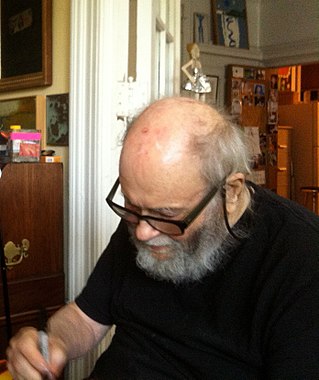
Arthur Coleman Danto was an American art critic, philosopher, and professor at Columbia University. He was best known for having been a long-time art critic for The Nation and for his work in philosophical aesthetics and philosophy of history, though he contributed significantly to a number of fields, including the philosophy of action. His interests included thought, feeling, philosophy of art, theories of representation, philosophical psychology, Hegel's aesthetics, and the philosophers Friedrich Nietzsche and Jean-Paul Sartre.

Walter Arnold Kaufmann was a German-American philosopher, translator, and poet. A prolific author, he wrote extensively on a broad range of subjects, such as authenticity and death, moral philosophy and existentialism, theism and atheism, Christianity and Judaism, as well as philosophy and literature. He served more than 30 years as a professor at Princeton University.
Coherence theories of truth characterize truth as a property of whole systems of propositions that can be ascribed to individual propositions only derivatively according to their coherence with the whole. While modern coherence theorists hold that there are many possible systems to which the determination of truth may be based upon coherence, others, particularly those with strong religious beliefs, hold that the truth only applies to a single absolute system. In general, truth requires a proper fit of elements within the whole system. Very often, though, coherence is taken to imply something more than simple formal coherence. For example, the coherence of the underlying set of concepts is considered to be a critical factor in judging validity for the whole system. In other words, the set of base concepts in a universe of discourse must first be seen to form an intelligible paradigm before many theorists will consider that the coherence theory of truth is applicable.
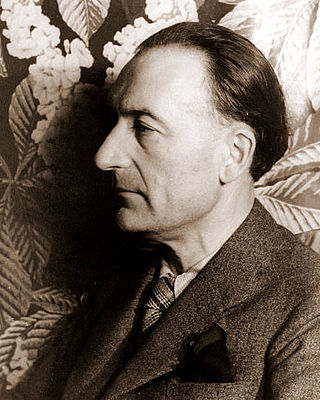
Jules Romains was a French poet and writer and the founder of the Unanimism literary movement. His works include the play Knock ou le Triomphe de la médecine, and a cycle of works called Les Hommes de bonne volonté . Sinclair Lewis called him one of the six best novelists in the world.
Dagobert David Runes was an immigrant publisher in the US, a philosopher and author.
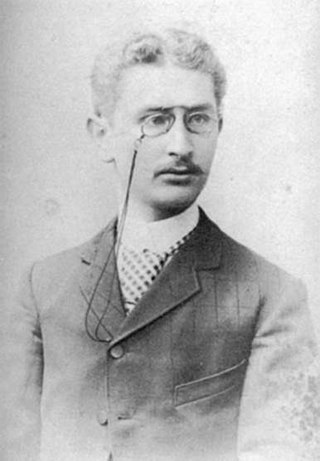
Max Talmey (1869–1941) was an American ophthalmologist of Jewish-Lithuanian descent, best known as Albert Einstein's tutor who introduced him to fields of and books on natural science and philosophy, for his success in treating cataracts, and for his work on auxiliary languages.

Sartre: Romantic Rationalist is a book by Iris Murdoch. Published in 1953 by Bowes & Bowes of Cambridge, it was Murdoch's first book and the first book about Jean-Paul Sartre's work to be published in English.













